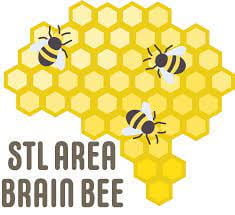About 50 high school students from across St. Louis region gathered virtually Feb. 26 to test their knowledge of the brain and to learn about neuroscience research and careers at the St. Louis Area Brain Bee, an annual event hosted by Washington University in St. Louis.
 “We were thrilled to have such a diverse, motivated group of high school students join us to talk about brain science and give away some prizes,” said Erik Herzog, PhD, the Viktor Hamburger Distinguished Professor in Arts & Sciences, who helped organize the Brain Bee along with members of Synapse, the university’s neuroscience student group.
“We were thrilled to have such a diverse, motivated group of high school students join us to talk about brain science and give away some prizes,” said Erik Herzog, PhD, the Viktor Hamburger Distinguished Professor in Arts & Sciences, who helped organize the Brain Bee along with members of Synapse, the university’s neuroscience student group.
Varun Vasireddy, a junior at Fort Zumwalt South High School in St. Peters, won the bee and will compete in the U.S. National Brain Bee on April 9. He also has been awarded a summer research fellowship at Washington University. Vasireddy, who placed second in last year’s competition, plans to study neuroengineering in college.
“As a curious person, I’m really drawn to neuroscience because so much is still unknown about the brain,” Vasireddy said. “I’ve also really enjoyed being part of Brain Bee because it’s given me the chance to get to know students and professors at WashU and learn what it’s like to study neuroscience in college.”
Vasireddy’s sister, Fort Zumwalt South first-year student Sivani Vasireddy, placed seventh and his cousin, Marquette High School sophomore Ankush Vasireddy, placed second.
“These competitions have become a family thing we do together,” said Vasireddy. “I’d say that we’re all pretty competitive but in the end, we’re happy for each other and support one another. Hopefully it will be their turn to win next.”
Approximately 30 Washington University undergraduate and graduate students, postdoctoral researchers and faculty members volunteered for the event, offering tutorials, writing and judging questions and sharing their expertise in — and enthusiasm for — neuroscience. In the weeks leading up to the Brain Bee, Synapse members hosted virtual practice sessions and sent competitors kits containing hands-on experiments to try at home.